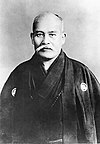Warning: in_array() expects parameter 2 to be array, string given in /web/htdocs/www.warmfit.com/home/wp-content/plugins/social-buttons-pack/twitter-plugin/twitter.php on line 136
Warning: in_array() expects parameter 2 to be array, string given in /web/htdocs/www.warmfit.com/home/wp-content/plugins/social-buttons-pack/twitter-plugin/twitter.php on line 139
Warning: in_array() expects parameter 2 to be array, string given in /web/htdocs/www.warmfit.com/home/wp-content/plugins/social-buttons-pack/bws-linkedin/bws-linkedin.php on line 142
Warning: in_array() expects parameter 2 to be array, string given in /web/htdocs/www.warmfit.com/home/wp-content/plugins/social-buttons-pack/bws-linkedin/bws-linkedin.php on line 144
Warning: in_array() expects parameter 2 to be array, string given in /web/htdocs/www.warmfit.com/home/wp-content/plugins/social-buttons-pack/facebook-button-plugin/facebook-button-plugin.php on line 589
Warning: in_array() expects parameter 2 to be array, string given in /web/htdocs/www.warmfit.com/home/wp-content/plugins/social-buttons-pack/facebook-button-plugin/facebook-button-plugin.php on line 592
Warning: in_array() expects parameter 2 to be array, string given in /web/htdocs/www.warmfit.com/home/wp-content/plugins/social-buttons-pack/twitter-plugin/twitter.php on line 136
Warning: in_array() expects parameter 2 to be array, string given in /web/htdocs/www.warmfit.com/home/wp-content/plugins/social-buttons-pack/twitter-plugin/twitter.php on line 139
Warning: in_array() expects parameter 2 to be array, string given in /web/htdocs/www.warmfit.com/home/wp-content/plugins/social-buttons-pack/bws-linkedin/bws-linkedin.php on line 142
Warning: in_array() expects parameter 2 to be array, string given in /web/htdocs/www.warmfit.com/home/wp-content/plugins/social-buttons-pack/bws-linkedin/bws-linkedin.php on line 144
Warning: in_array() expects parameter 2 to be array, string given in /web/htdocs/www.warmfit.com/home/wp-content/plugins/social-buttons-pack/facebook-button-plugin/facebook-button-plugin.php on line 589
Warning: in_array() expects parameter 2 to be array, string given in /web/htdocs/www.warmfit.com/home/wp-content/plugins/social-buttons-pack/facebook-button-plugin/facebook-button-plugin.php on line 592
Aikido, extraordinary martial art;
Aikido (Japanese: 合気道 Hepburn: Aikidō?) [a.i.ki.doː] is a modern Japanese martial art developed by Morihei Ueshiba as a synthesis of his martial studies, philosophy, and religious beliefs. Aikido is often translated as “the way of unifying (with) life energy“[1] or as “the way of harmonious spirit.”[2] Ueshiba’s goal was to create an art that practitioners could use to defend themselves while also protecting their attacker from injury.[3][4]
Aikido, extraordinary martial art
Aikido techniques consist of entering and turning movements that redirect the momentum of an opponent’s attack, and a throw or joint lock that terminates the technique.[5]
Aikido derives mainly from the martial art of Daitō-ryū Aiki-jūjutsu, but began to diverge from it in the late 1920s, partly due to Ueshiba’s involvement with the Ōmoto-kyō religion. Ueshiba’s early students’ documents bear the term aiki-jūjutsu.[6]
Aikido, extraordinary martial art
Ueshiba’s senior students have different approaches to aikido, depending partly on when they studied with him. Today aikido is found all over the world in a number of styles, with broad ranges of interpretation and emphasis. However, they all share techniques formulated by Ueshiba and most have concern for the well-being of the attacker
Etymology and basic philosophy
“Aikidō” written with “ki” in its old character form
The word “aikido” is formed of three kanji:
-
合 – ai – joining, unifying, combining, fitting
-
気 – ki – spirit, energy, mood, morale
-
道 – dō – way, path
The term “aiki” does not readily appear in the Japanese language outside the scope of Budo. This has led to many possible interpretations of the word. 合 is mainly used in compounds to mean ‘combine, unite, join together, meet’, examples being 合同 (combined/united), 合成(composition), 結合 (unite/combine/join together), 連合 (union/alliance/association), 統合 (combine/unify), and 合意 (mutual agreement). There is an idea of reciprocity, 知り合う (to get to know one another), 話し合い (talk/discussion/negotiation), and 待ち合わせる (meet by appointment).
気 is often used to describe a feeling, as in X気がする (‘I feel X’, as in terms of thinking but with less cognitive reasoning), and 気持ち(feeling/sensation); it is used to mean energy or force, as in 電気 (electricity) and 磁気 (magnetism); it can also refer to qualities or aspects of people or things, as in 気質 (spirit/trait/temperament).
The term dō is also found in martial arts such as judo and kendo, and in various non-martial arts, such as Japanese calligraphy (shodō), flower arranging (kadō) and tea ceremony (chadō or sadō).
Therefore, from a purely literal interpretation, aikido is the “Way of combining forces”, in that the term aiki refers to the martial arts principle or tactic of blending with an attacker’s movements for the purpose of controlling their actions with minimal effort.[7] One applies aiki by understanding the rhythm and intent of the attacker to find the optimal position and timing to apply a counter-technique.
History
Aikido was created by Morihei Ueshiba (植芝 盛平 Ueshiba Morihei, 14 December 1883 – 26 April 1969), referred to by some aikido practitioners as Ōsensei (“Great Teacher”).[8] The term ‘aikido’ was coined in the twentieth century.[9] Ueshiba envisioned aikido not only as the synthesis of his martial training, but as an expression of his personal philosophy of universal peace and reconciliation. During Ueshiba’s lifetime and continuing today, aikido has evolved from the Aiki that Ueshiba studied into a variety of expressions by martial artists throughout the world.[5]
Aikido, extraordinary martial art

 Italiano
Italiano English
English Español
Español Français
Français



Discussione (0)
Non ci sono ancora commenti per questo documento.
L'invio dei commenti è stato disabilitato per questo documento.